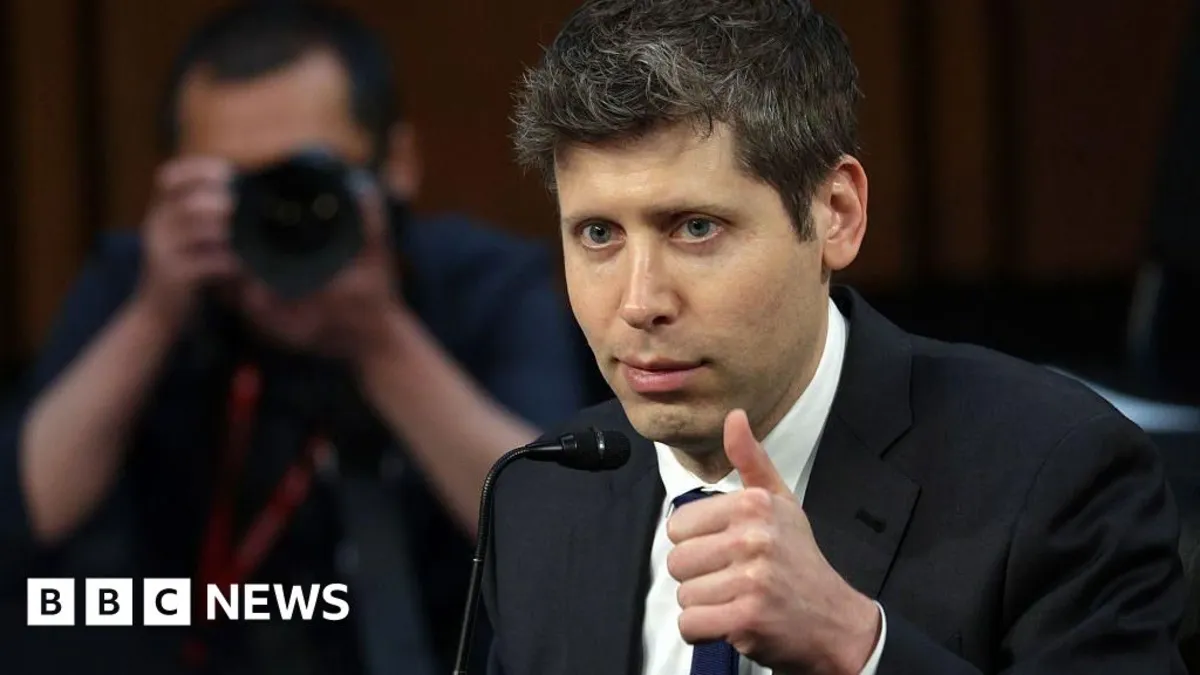
The CEO of OpenAI, Sam Altman, recently revealed that members of his team have been receiving substantial offers from rival tech giant Meta. These offers include staggering signing bonuses of up to $100 million (£74.3 million). Meta, the parent company of Facebook, Instagram, and WhatsApp, is aggressively working to enhance its artificial intelligence (AI) capabilities. The company has also invested $14 billion (£10.4 billion) to acquire a 49% stake in the startup, Scale AI.
Despite these enticing offers, Altman noted that, so far, none of his top talent have opted to leave OpenAI for Meta. In a recent appearance on his brother Jack's podcast, Altman acknowledged Meta's ambitious approach to competing in the AI landscape. He pointed out that in addition to the hefty signing bonuses, Meta is offering lucrative annual compensation packages, although he did not specify whether these figures included salaries, stock options, or other incentives.
Altman believes that the core mission of OpenAI—to develop superintelligence—is a key factor in retaining talent. He mentioned that the potential economic rewards and the opportunity to contribute to groundbreaking advancements in AI are compelling reasons for employees to stay. Both OpenAI and other AI organizations are optimistic about achieving artificial general intelligence (AGI) in the near future, which would enable AI systems to perform tasks at or beyond human capabilities.
OpenAI's commitment to AI innovation is exemplified by its recent announcement of a joint venture to invest $500 billion in new data centers in the United States. These centers are crucial for powering AI technologies. Altman expressed confidence that OpenAI is better positioned to achieve the goal of superintelligence and potentially become a more valuable entity in the tech industry.
According to Altman, one of the standout features of OpenAI is its unique culture, which he believes effectively attracts talented engineers passionate about innovation. He acknowledged that while he respects various aspects of Meta as a company, he does not view it as a leader in innovation. Altman stated, “There are many things I respect about Meta as a company, but I don’t think they’re a company that’s, like, great at innovation.”
Although Altman characterized Meta's pursuit of superintelligence as rational, he drew parallels to Google's unsuccessful attempts to launch a social media platform to compete with Facebook. His remarks reflect a broader trend in the tech industry, where leading figures frequently share their insights about competitors through podcasts, often resulting in critical assessments.
In January, on Joe Rogan's podcast, Meta founder Mark Zuckerberg praised Apple's iPhone, calling it one of the most significant inventions in history. However, he critiqued his own company for lacking recent innovative releases. This critique pales in comparison to Zuckerberg's tumultuous relationship with fellow tech entrepreneur Elon Musk, who has been involved in a legal dispute with Altman over the founding of OpenAI.
In conclusion, as the competition in the AI sector intensifies, OpenAI's commitment to its mission and unique company culture may continue to attract top talent, despite the lucrative offers from rivals like Meta.